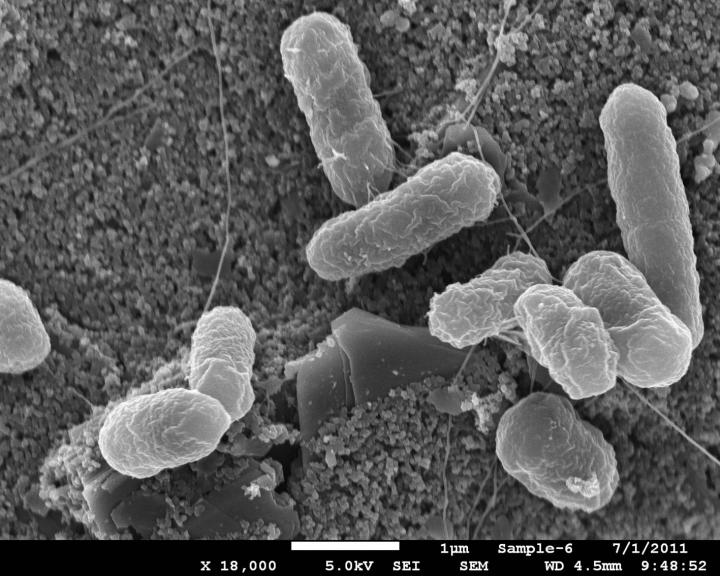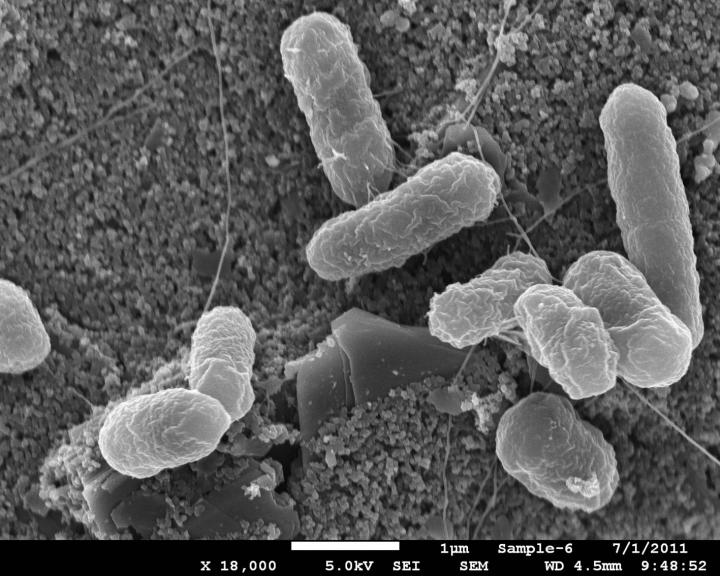
EAST LANSING, Mich. – Everyone has suffered from it. It's ranged from mild to severe. It's a condition that's most-often described in a whisper.
Diarrhea.
Severe cases of diarrhea, however, are no joking matter. Research led by Michigan State University and published in a recent issue of the journal Microbiome may offer patients suffering from acute cases new treatments that focus on intestinal microbial communities to prevent the disease.
In the U.S. alone, most diarrhea is caused by 31 different foodborne pathogens that are responsible for more than 9.4 million infections, nearly 56,000 hospitalizations and 1,351 deaths annually.
In the MSU study, most of the patients had an increase in the level of Escherichia, bacteria that are commonly found in the intestines that can sometimes be pathogenic, said Shannon Manning, MSU Foundation Professor of microbiology and molecular genetics and leader of the study.
"Compared to the uninfected patients in the study, the patients who were infected with four different diarrheal pathogens – Salmonella, Shiga toxin-producing E. coli, Campylobacter and Shigella – all had increased levels of Escherichia," she said. "In addition, patients had a decrease in the Escherichia population after they recovered."
These findings are important because new treatments could be developed to control the levels of Escherichia in cases of severe diarrhea and/or to promote the growth of microbial populations that are important for healthy gut function, she added.
The team's results came from sequencing DNA from microbes in the gut from people with diarrheal disease caused by these four different pathogens. Comparisons were then made to the microbes found in their healthy family members. Not surprisingly, the gut microbial communities were different in sick and healthy people.
What was unsuspecting, though, was that changes in all of the gut bacterial communities from patients were altered in similar fashion, regardless of the pathogen causing the infection. In addition, patients with specific microbial community profiles had more severe disease, and these changes were similar, regardless of age, gender or race.
Future research based on these findings should examine treatment strategies involving probiotics or therapeutics that aim to increase beneficial microbes and more rapidly decrease Proteobacteria populations, a major group of bacteria that include many pathogens such as Escherichia. Such strategies could potentially decrease the burden of intestinal infections and facilitate quicker recoveries.
###
Additional MSU researchers who were involved in the study include: Pallavi Singh, Tracy Teal, Terrence March, James Tiedje, Rebekah Mosci, Katherine Jernigan and Angela Zell. Scientists from the University of Michigan, Wayne State University, Spectrum Health, Sparrow Hospital, Baylor College of Medicine and the Michigan Department of Health and Human Services also contributed to this research.
Michigan State University has been working to advance the common good in uncommon ways for more than 150 years. One of the top research universities in the world, MSU focuses its vast resources on creating solutions to some of the world's most pressing challenges, while providing life-changing opportunities to a diverse and inclusive academic community through more than 200 programs of study in 17 degree-granting colleges.
For MSU news on the Web, go to MSUToday. Follow MSU News on Twitter at twitter.com/MSUnews.





